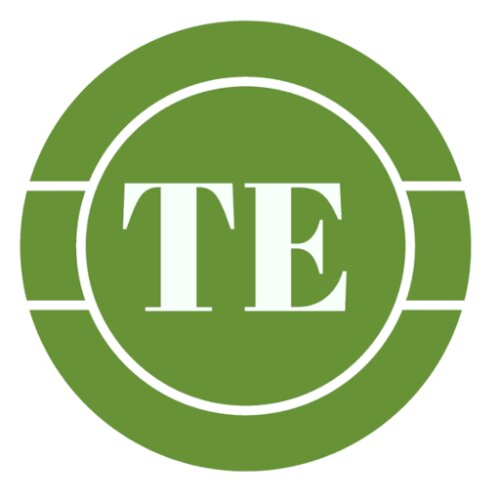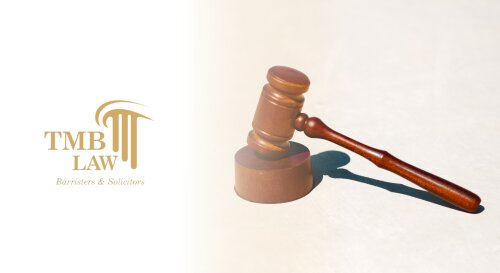Best ADR Mediation & Arbitration Lawyers in Oshawa
Share your needs with us, get contacted by law firms.
Free. Takes 2 min.
List of the best lawyers in Oshawa, Canada
About ADR Mediation & Arbitration Law in Oshawa, Canada
Alternative Dispute Resolution (ADR) encompasses various techniques, with mediation and arbitration being the most common, for resolving disputes outside of the traditional court system. In Oshawa, Canada, ADR is increasingly favored for its efficiency, confidentiality, and cost-effectiveness. By providing a neutral platform, ADR allows disputing parties to reach mutually agreeable solutions through mediation or receive binding decisions through arbitration.
Why You May Need a Lawyer
While ADR aims to simplify dispute resolution, navigating its processes can still be complex. Here are some common situations where legal assistance might be required:
- Contractual Disputes: Clarifying terms and ensuring that agreements reached are legally binding.
- Family Matters: Resolving sensitive issues like divorce, custody, or inheritance in a less adversarial environment.
- Commercial Disputes: Mediating conflicts between businesses to find mutually agreeable solutions without litigation.
- Employment Issues: Addressing workplace disputes, including wrongful dismissal or harassment claims.
- Complex Legal Questions: Understanding the intricacies of ADR clauses and their implications.
Local Laws Overview
In Oshawa, ADR practices are supported and regulated by both provincial and federal laws. Key aspects include:
- Arbitration Act: Governs the conduct of arbitration proceedings, including the enforceability of arbitration agreements and awards.
- Mediation Requirements: Certain disputes, especially family law cases, may require mandatory mediation before proceeding to court.
- Confidentiality: ADR proceedings are typically private, and information disclosed during these processes is generally confidential.
- Enforceability: Agreements reached through mediation and arbitration awards can be legally binding and enforceable by the courts.
Frequently Asked Questions
What is the difference between mediation and arbitration?
Mediation involves a neutral mediator who helps the parties reach a voluntary agreement, while arbitration involves an arbitrator who renders a binding decision after hearing evidence and arguments.
Is ADR mandatory for certain disputes?
In some cases, especially in family law, courts may require parties to attempt mediation before proceeding to litigation.
How do I know if my dispute is suitable for ADR?
Most civil disputes can be resolved through ADR, but complex cases involving public law issues may not be suitable. Legal advice can help determine this.
How long does the ADR process take?
The duration can vary greatly depending on the complexity of the case, but ADR typically resolves disputes faster than traditional litigation.
What are the costs associated with ADR?
Costs can vary but are generally lower than court fees and legal expenses associated with prolonged litigation. Mediator and arbitrator fees are primary costs.
Can I bring a lawyer to ADR proceedings?
Yes, having a lawyer can help protect your interests and ensure you understand the legal implications of agreements reached during ADR.
Is the decision from arbitration final?
Yes, arbitration decisions are typically binding and enforceable, with limited grounds for appeal.
How can I enforce a mediation agreement or arbitration award?
If the other party fails to comply, you can seek enforcement through the courts, making the agreement or award legally binding.
What happens if ADR fails to resolve the dispute?
If mediation is unsuccessful, parties may proceed to arbitration or litigation. An arbitration decision can be appealed in limited circumstances.
Are ADR proceedings confidential?
Yes, both mediation and arbitration proceedings are generally private and confidential, unlike court proceedings which are public.
Additional Resources
Various resources can assist you in understanding and navigating ADR in Oshawa, Canada:
- Ministry of the Attorney General: Provides information on ADR services and regulations in Ontario.
- Association of Canadian Arbitrators (ACA): Offers listings of qualified arbitrators and resources on arbitration practices.
- Law Society of Ontario: Can help you find a qualified lawyer specialized in ADR.
- Legal Aid Ontario: Offers legal assistance for those who qualify, which can include ADR proceedings.
Next Steps
If you need legal assistance in ADR Mediation & Arbitration in Oshawa, follow these steps:
- Consult: Schedule a consultation with a lawyer specialized in ADR to discuss your case and options.
- Prepare: Gather all relevant documentation and information related to your dispute.
- Engage: Participate actively in ADR sessions, being open to negotiation and resolution.
- Review: Carefully review any agreements or awards with your lawyer before finalizing.
- Follow-up: Ensure compliance with the agreement or award and take necessary steps to enforce it if needed.
If initial attempts at ADR are unsuccessful, your lawyer can guide you on the next steps, including potential litigation.
Lawzana helps you find the best lawyers and law firms in Oshawa through a curated and pre-screened list of qualified legal professionals. Our platform offers rankings and detailed profiles of attorneys and law firms, allowing you to compare based on practice areas, including ADR Mediation & Arbitration , experience, and client feedback.
Each profile includes a description of the firm's areas of practice, client reviews, team members and partners, year of establishment, spoken languages, office locations, contact information, social media presence, and any published articles or resources. Most firms on our platform speak English and are experienced in both local and international legal matters.
Get a quote from top-rated law firms in Oshawa, Canada — quickly, securely, and without unnecessary hassle.
Disclaimer:
The information provided on this page is for general informational purposes only and does not constitute legal advice. While we strive to ensure the accuracy and relevance of the content, legal information may change over time, and interpretations of the law can vary. You should always consult with a qualified legal professional for advice specific to your situation.
We disclaim all liability for actions taken or not taken based on the content of this page. If you believe any information is incorrect or outdated, please contact us, and we will review and update it where appropriate.













